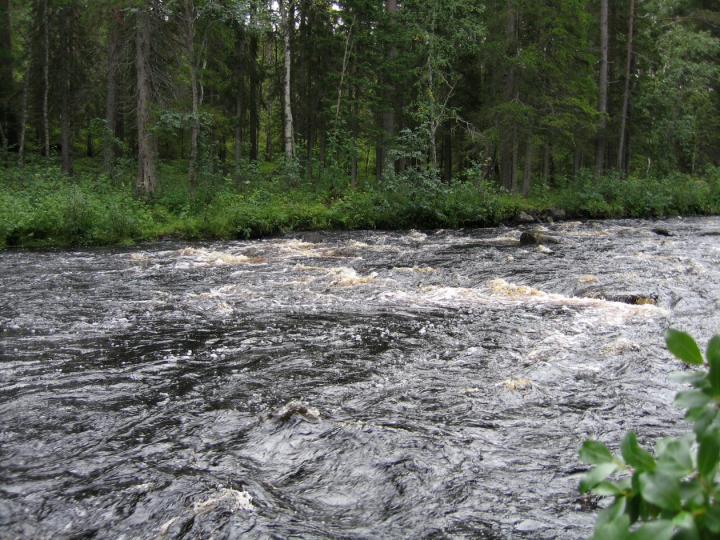
Credit: Pirjo Ferrin
The amount of carbon transported via Finnish rivers to the Baltic Sea has risen substantially in the past few decades. This was found in a collaborative study by the University of Helsinki, Aarhus University and the Finnish Environment Institute. The researchers don’t know the exact effects yet.
The researchers investigated changes in the amount of organic carbon by exploring water-quality monitoring data for 30 rivers and a period of 25 years. The data demonstrated that Finnish rivers now transport 280,000 tonnes more carbon to the Baltic Sea each year than they did in the early 1990s.
Previous studies have shown that the riverine total organic carbon (TOC) load to the Baltic Sea is closely connected to precipitation: the load in a dry year may be less than half of that in a rainy year. Considerable year-on-year variation has hindered the observation of long-term trends, but the dataset collected in recent decades with modern measuring techniques is now sufficiently extensive for reliable assessments.
“We found that TOC concentrations have increased in almost every river since the early 1990s. When combined with discharges that have remained unchanged or increased, TOC discharge to the Baltic Sea has increased considerably: by almost 50% from 1993,” explains Eero Asmala, a postdoctoral researcher at the Faculty of Biological and Environmental Sciences, University of Helsinki.
The phenomenon can be attributed, in particular, to climate change and the associated increases in precipitation and temperature. The researchers discovered that the rise in TOC concentrations can be explained in half of the cases by changes in discharge, which has been caused, in turn, by changes in precipitation. In addition, increasing temperatures and decreasing acidity contributed to an increase in TOC concentrations observed in some areas. Land use also affected the growth of TOC concentrations.
“The larger the share of a catchment drained, the more TOC concentrations had increased. The rise in concentrations was approximately 20% in the least drained catchments, whereas it was twice as large in the most drained catchments,” notes Antti Räike, senior researcher at the Finnish Environment Institute.
The rising TOC concentrations and discharges of Finnish rivers have coincided with the decreasing TOC contents in Finnish soil. It is possible that at least some of the carbon that has disappeared from the soil has been transported by rivers to the Baltic Sea.
The increasing TOC concentration makes waters turbid and decreases water transparency. In addition, the increased organic load increases the risk of hypoxia in bottom waters.
“On balance, we still do not know much about how the carbon that ends up in the Baltic Sea affects the coastal ecosystem,” Asmala says.
However, several research projects at the University of Helsinki are currently exploring the climate effects of, in particular, carbon transported to coastal waters.
###
Media Contact
Eero Asmala
[email protected]
358-294-128-117
Original Source
https:/
Related Journal Article
http://dx.




